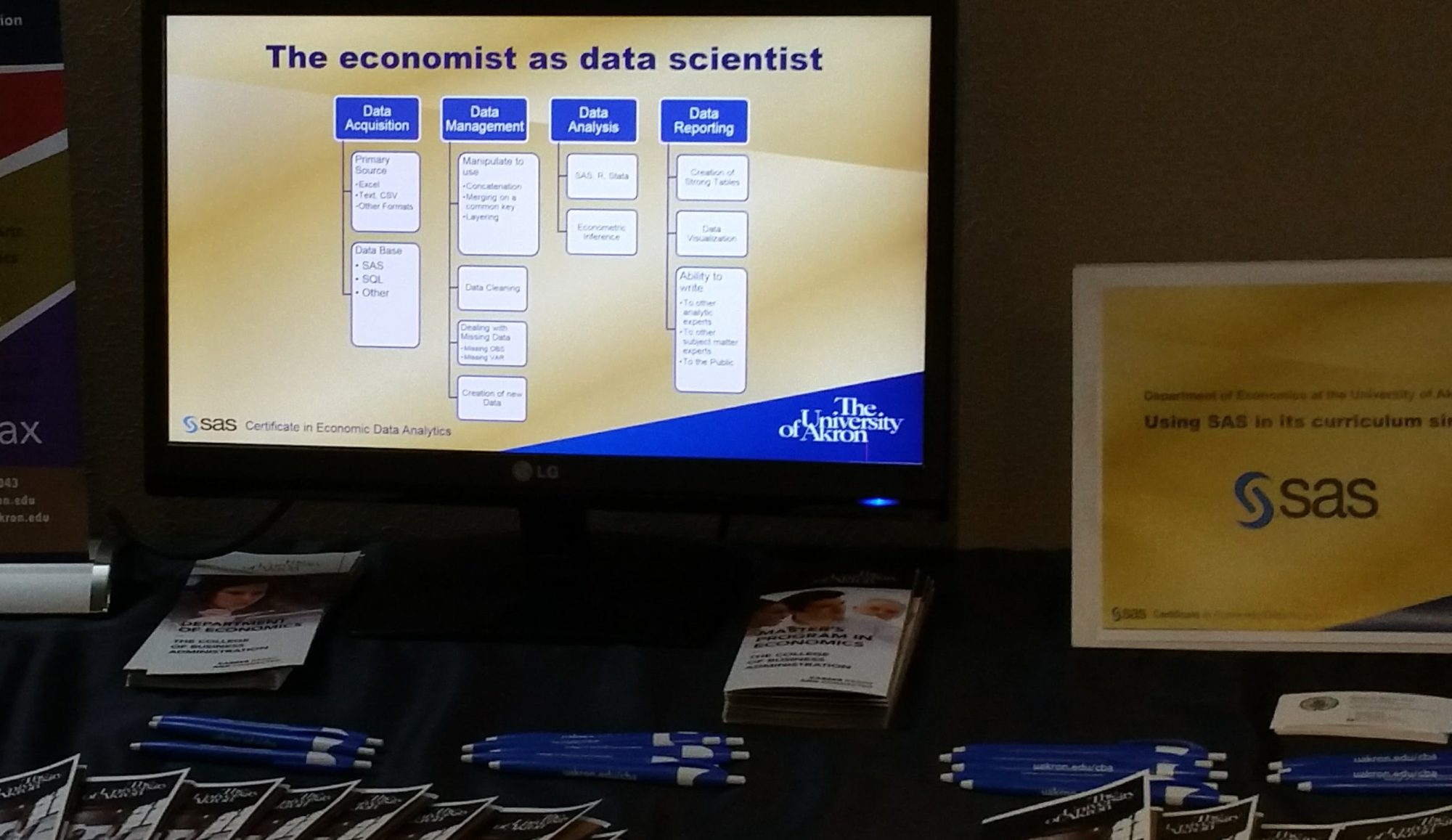First published on Facebook on November 7, 2017
When I first started studying economics in the early 1970s, one fact quickly stood out. Everyone was an ‘economist.’ That is, everyone seemed to have opinions on all parts of the economy, every law, and every turn of events. I would then and since get disheartened reading stories from those who purport to expound on economics when in reality, they repeat only the commentary made in the press or by politicians whose comments are meant to divide and not inform. Most had part of ‘it’ right, but few seemed to get the big picture. Or if they declared the big picture, they were woefully short of evidence.
As one example, let me assure you that no economist ever introduced the “Trickle Down Economic Theory.” It is a political unicorn; it doesn’t exist and never has. Its roots are with the partisan. It is not a scientific theory. Those who use it show their ignorance or bias. There is so much of this going around (as they say).
Economics is very easy to understand at the level of principle. I love teaching it and watching the ah-ha moments happen as another principle finds its way from the text to the applied. Economics is a broad and deep study, and it takes time to incorporate all of the principles into a cogent and consistent body of knowledge. It is a scientific discipline, the queen of the social sciences, and the most analytical of business knowledge.
What disheartens me the most is the bad economists out there (using Frederic Bastiat’s simple definition of what is a good economist and what is a bad economist. A “bad economist” is one who cannot “see the unseen,” that is, they are not wise or knowledgeable enough to analyze a problem. This bad economist is simply ignorant. On the other hand are the economists who are “bad” and who are not ignorant but willfully misleading because they are driven by ideology or, most often, their paycheck is signed by someone who wants a particular point of view. Years ago, I referred to these as “agency economists.”
Between a good and a bad economist this constitutes the whole difference — the one takes account of the visible effect; the other takes account both of the effects which are seen, and also of those which it is necessary to foresee. Now this difference is enormous, for it almost always happens that when the immediate consequence is favourable, the ultimate consequences are fatal, and the converse. Hence it follows that the bad economist pursues a small present good, which will be followed by a great evil to come, while the true economist pursues a great good to come, — at the risk of a small present evil.
Frédéric Bastiat. That Which is Seen, and That Which is Not Seen, http://bastiat.org/en/twisatwins.html
Why would people buy into what the agency economists are selling? Perhaps the message resonates with a fear or a preconceived notion that is confirmed. So you believe what you hear, and before long, the “bad economist” experts have you believing that inequality in wages is always bad, tax cuts for the rich are always bad, capitalism itself has failed, and so many other pieces of nonsense.

I don’t care how you vote, but I do care about the principles on which you make your decision. If you understand the principles of economics and want to vote opposite of me, then, by all means, do so with no ill will from me. If, on the other hand, you vote based solely on what “bad economists,” biased journalists, and biased politicians (a redundant saying) have said to you, each with their own persuasive point of view, and you do so without seeking to understand how what they tell you has to do with well established economic principles then I am saddened beyond belief.

N.B. My Undergraduate economics adviser referred to economics as a layering process, each course adds a new layer, and each has a greater chance of sticking. He liked pointing out this story. Dean Rusk, Secretary of State in the 1960s, was asked why he was hiring Ph.D. economists (good ones, history shows) into positions that did not require an economist. He replied that by the time an economist gets a Ph.D., they have been trained and vested in marginal analysis (a scientific manner of problem-solving), and every problem of state was a study of marginal changes and their impact. In other words, Dean Rusk would not have hired anyone who believed in trickle-down theory, nor a bad economist.
